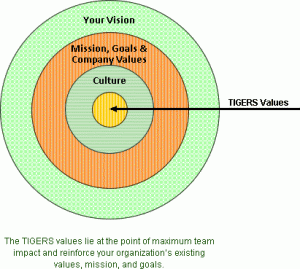
However, if leaders develop a team culture that looks at failure as an important step toward team success, it avoids corporate stagnation. In this way, risk becomes the fuel for change and innovation as leaders transform mistakes into valuable learning opportunities.
Developing a team culture that downplays the fear of risk involves good planning and a successful process handling mistakes. Determining how risk impacts the company’s workforce development, strategies, systems, and values is an important part of the company’s planning process.
Teams are made up of people and people make mistakes. Given this, what should leaders consider when striking the right balance in handling mistakes to develop a company with the ability to learn and grow?
Consider the following:
- Adopt a problem solving process that determines the root cause of mistakes.
- Document how you determined the root cause of a mistake.
- Study and discuss mistakes from the perspective of curiosity so mistakes are not repeated and are used as learning tools.
- Train employees to confront problems proactively.
- Train employees in confrontation and feedback skills.
- Develop a coaching and mentoring program for employees to help correct mistakes and to comment on successes as they occur.
- Promote the expectation that every member is to be accountable and committed to the team and the team’s objectives.
- Most Important: The way risk is managed leads to success or stagnation in your company culture.
Many leaders and employees are hesitant to risk and approach problem solving by over analyzing and controlling outcomes to such an extent that many teams fail to move forward in implementing plans. Therefore, it is important to handle the mistakes in a positive way, so risks become opportunity for learning and a means for positive change that result in new innovations and success.